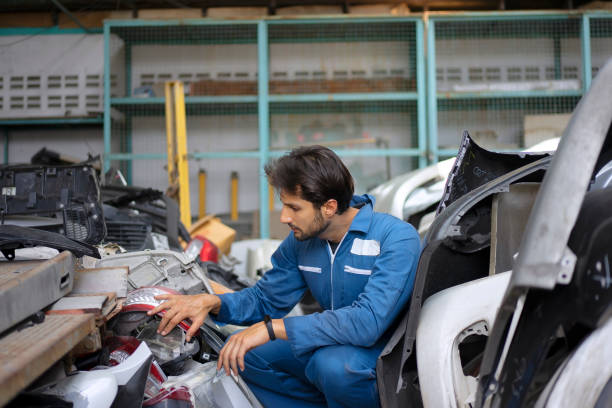
Despite the talk of electric mobility shutting down the auto component industry in India, the country has achieved great growth. It is gaining great recognition in key auto markets such as Japan, Korea, and Europe. According to the latest statistics of the Automotive Component Manufacturers Association of India, the auto component industry reached a market value of Rs 2.92 lakh crores in 2016. Even the exports increased by 3.1%, and the level of Rs 70.916 crores was achieved. It is expected that the growth rate will continue to expand and reach US$115 billion in 2020-21. This industry has a lot of employment potential because it is growing at a rapid pace.
The auto industry, especially the auto component segment, remained buoyant despite facing stiff financial challenges such as demonetization and irregularities in the GST implementation. This amazing situation allowed many job professionals to enter the industry, especially in the departments of R&D, Quality Assurance, Processing, Maintenance, and more. Since 2017, the auto industry has shown a steady upward trend in hiring. From October 2017, a significant growth of 20 percent was observed. The Job Speak Index in February 2018 increased by 6 percent compared to February 2017.
The industry will not only remain functional, but it will also grow due to the growing demand for Indian products in the overseas market. Experts in the industry believe that the auto component sector will grow faster than the automobile industry in the medium-long term due to an increase in exports. According to the Department of Industrial Policy and Promotion’s latest report, private equity investments in the automotive component sector have increased 607 percent from January to May 2017. This indicates a bright future ahead for professionals who enter the auto component industry.
Employers and investors in the industry who had been hesitant to invest because of the sudden fear of electric mobility sweeping the market have now decided to stick with it. They are making plans to bring the latest technology and innovation to it. When the Indian government announced that it would no longer pursue its “All-electric vehicle policy by 2030”, this quelled the wildfire of electric vehicles. The employers were further encouraged to strengthen and improve their skills with a futuristic outlook and to pay attention to the same. Many industry associations across the nation set up an Automotive Skill Development Council.
It is the ethical way in which changes are introduced and implemented that will determine the sustainability of the industry. The industry will face challenges, so the best way to deal with them is to embrace the changes as soon as possible and set an example for the rest of the industry. It is time to concentrate on emerging trends and create some excellent employment opportunities for the threatened workforce. Only those who can adapt quickly to the changing technological landscape will be able to survive in this ecosystem. Re-skilling the crew in the auto component industry according to the new transformation is the most important thing to do to ensure safety, stability, and soundness.
This is the type of challenge that puts the ability to innovate and advance an industry to the test. The workforce must have a positive attitude and learn new technologies, as well as explore the job market. India’s technological infrastructure is capable of recycling lithium-based EV Batteries, so a unique skill set supporting mobility will bring revenue and job opportunities to the country. Solar and wind energy will also have a bright future in India as electric vehicles will require more environmentally-friendly power. To meet the increasing power demand in the future, both the energy and power distribution sectors will have to recruit large numbers of people.





